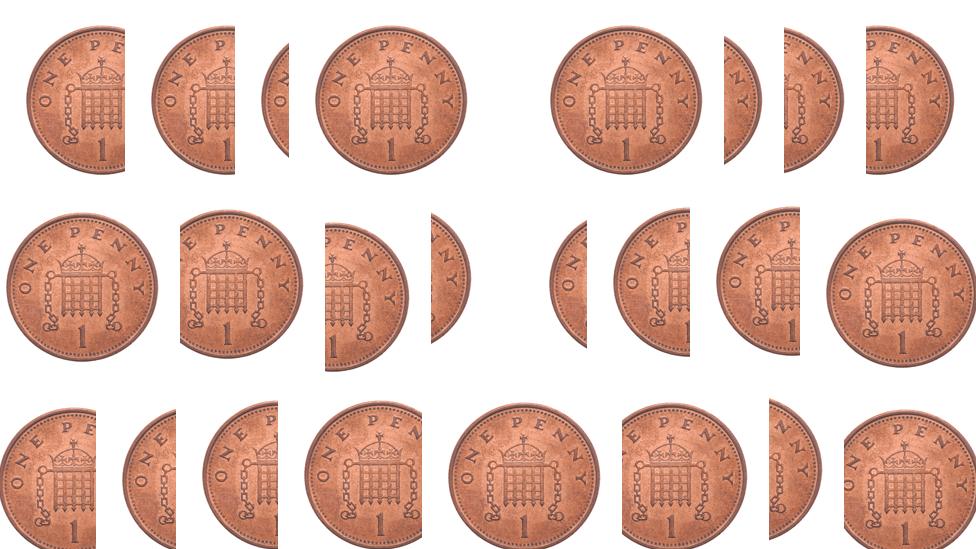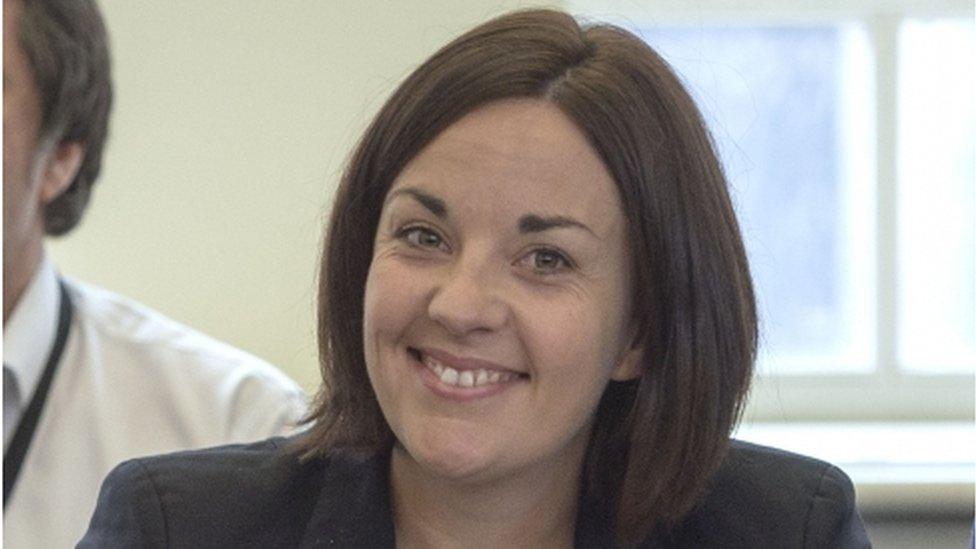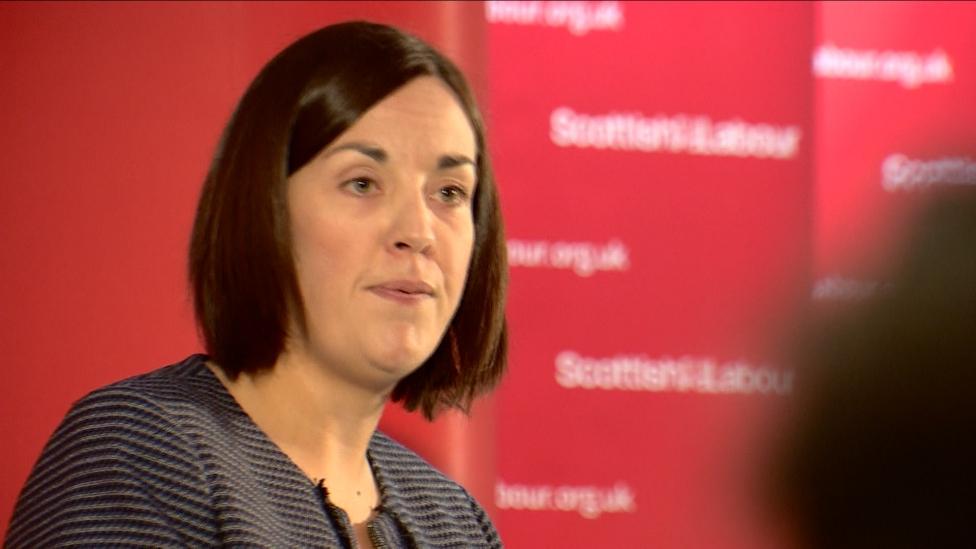The penny rise is a taxing problem
- Published

What to make of Labour's tax proposal? At minimum, at nadir, it gives Kezia Dugdale something to say when she confronts the now customary challenge from the First Minister as to Labour's grand design for sustaining public services in this age of enforced austerity.
At the other end of the spectrum, at zenith, it may prompt a much wider, much more durable debate about the provision and funding of said services within Holyrood's new, expanding ambit. That, at least, is the hope of key Labour strategists.
In between, of course, is the basic offer: To increase Scottish income tax across all bands by one per cent from April; Eliot's "cruellest month" and now a node for transformed political debate in Scotland.
Yes, the tax plan is relatively simplistic in that it is Calman content - without the capacity to vary the imposition between lower and upper bands.
Yes, the proposal to assist the lowest earners by a system of a £100 pound rebate, administered by local authorities, is relatively clumsy - although Labour is adamant, having checked with local authority chief executives and lawyers, that it falls within existing legal and administrative competence.
But consider this. In all probability, in current circumstances, Labour's immediate plan won't happen. It won't have to be implemented. Why so? Not politics, arithmetic. The SNP will win the vote in Holyrood on its April tax plan - which is to leave well alone, pending new powers from next year.
That is made even more certain by the fact that the Greens say Labour's approach would involve "extra complexity and cost". They too prefer to focus on the Smith powers, due from next year - fiscal framework talks permitting.
Forward offer
That does not, repeat not, mean that Labour's initiative is merely a stunt. It is setting out its stall, differentiating itself from the SNP now - and possibly in the future. It is making a choice - whether or not that choice stands an immediate chance of success.
So is Labour's plan rather aimed at May - the month when, according to Swinburne, meaning is clear. To a large degree, yes. This is a forward offer, predicated again upon that fundamental choice.

The Labour leader may be instigating a new debate in Scottish politics
If and when those Smith powers are available from 2017, the elected Scottish Government would be able to differentiate between upper and lower bands, perhaps finding another way through revised banding to exempt the lowest paid.
But, equally, arithmetic kicks in here. The more realistic Labour thinkers note the polls and ponder. Are they likely to form the next Scottish Government? As things stand, no. Might, then, a distinct offer on tax and spending mitigate defeat? Perhaps.
Might it also instigate a new debate in Scotland? Not this time primarily about the constitution, about the fault line of the Union versus independence. But about the choice between public services, particularly education, and tax.
One senior Labour figure said to me that such a debate might counteract the myth - which, he suggested, was assiduously cultivated by the SNP - that Scotland could have Scandinavian levels of public services alongside US levels of taxation.
Electorally, will the offer work? Will it have an impact now? In May? In subsequent months and years?
Penny for Scotland
Labour obviously believes that it will - although one contact conceded there had been a few sharp intakes of breath when the plan was disclosed to MSPs and others over the weekend. One apparently said: "If we do this, we're finished." Or a word closely resembling "finished" at least initially.
An SNP strategist of experience recalls the Penny for Scotland when, in 1999, the Nationalists offered to reverse, for Scotland alone, a planned Labour UK cut in income tax.
Said strategist noted that the SNP had an apparent polling lead just before Penny for Scotland. Only to lose that lead shortly after launch.
It was, according to another observer, one more example of the phenomenon whereby people are eager for tax to be paid - by others.
But was that polling development simply coterminous, or was there a causal link? Plus, reminded of that, my Labour interlocutor argues that the times are sharply different. That people today are much more aware of the threat facing local services and thereby more prepared to tolerate a tax hike.
Maybe, maybe.
The SNP has launched a strong attack on the Labour scheme, condemning it as "complicated, unfair and unworkable", an imposition upon 2.2m working people plus half a million pensioners. At her launch today, Ms Dugdale announced support for low income pensioners as well as those in employment.
Council tax
Does the vigour of the SNP attack merely match these taut electoral times? Or does it mirror their distaste for the scheme? Or does it partly reflect concern that some - stress, some - voters might find the package palatable.
The genesis of Labour's plan is also interesting. A small team around the leader looked at options regarding the issue of what answer to give to Nicola Sturgeon.
Could they back an end to the council tax freeze? That might have delighted Labour's local authority panjandrums.
But it had substantial practical problems. Not least the issue of gearing. Council tax raises a small fraction of local authority revenue. That means it requires a big increase in council tax to generate a relatively modest return.
Cue vote disquiet - with Labour taking the blame, if they had backed such a freeze. I am told that Jackie Baillie was particularly vigorous in arguing against such a route, both pragmatically and politically.
Hence income tax. To stress again, this is not purely tactical. It is not solely a ruse. But it is strategic. It is designed to create a broader - and, quite possibly, longer - narrative, not solely to advance the immediate minutiae of a tax scheme.
- Published2 February 2016
